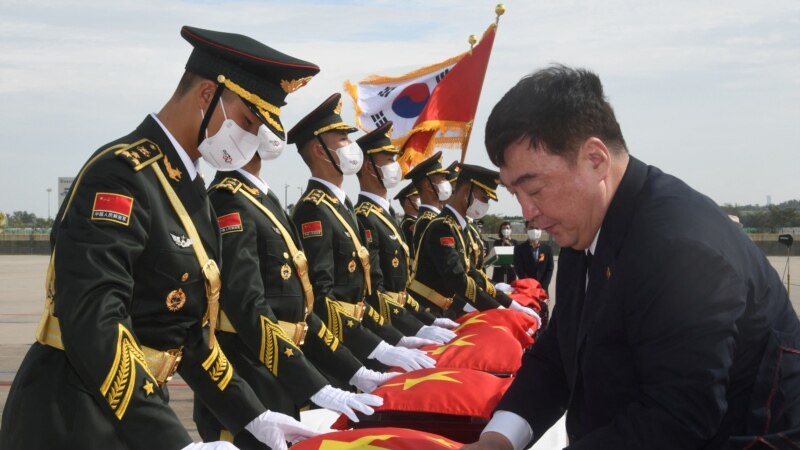
South Korea summoned China’s ambassador to Seoul on Friday, condemning what it called his “unforgivable” criticism of South Korea, in the latest flareup of tensions between Seoul and Beijing.
The move came after Chinese ambassador Xing Haiming gave a Thursday speech that was broadly critical of South Korea’s foreign policy and how Seoul has become more aligned with the United States.
“There are many difficulties in our bilateral relationship. And frankly, the responsibility does not lie with China,” Xing said, according to a statement released by China’s embassy in Seoul.
In particular, Xing insinuated that South Korea was bowing to “external factors,” such as the U.S. pressure campaign against China.
“We hope the South Korean side will faithfully keep its promise and clearly respect China’s core interests, including on the Taiwan issue,” he added.
The Chinese ambassador’s speech came during a dinner event with Lee Jae-myung, the South Korean opposition leader and fierce critic of South Korean President Yoon Suk Yeol.
In response, South Korea’s first vice foreign minister Chang Ho-jin summoned Xing, according to a statement Friday by South Korea’s Ministry of Foreign Affairs.
“He strongly warned and expressed regret over Xing’s unconventional and provocative words and actions, which were contrary to diplomatic customs,” the statement said.
Xing’s comments, Chang said, were “untrue and unforgivable,” and could be seen as an attempt to interfere in South Korea’s domestic politics.
He also warned Xing not to “deviate from the duties of his diplomatic mission,” warning that the Chinese diplomat “will be responsible for all consequences.”
South Korea-China tensions also spiked in April, after President Yoon condemned “attempts to change the status quo by force” in Taiwan – an apparent reference to China’s increased military threats against the self-ruled island.
Yoon also said the Taiwan issue was of global importance – contradicting China’s claim that it is purely a domestic matter.
After China’s foreign ministry scolded Yoon, Seoul pushed back, summoning the Chinese ambassador, blasting Beijing’s criticism as “unspeakable,” and lodging a complaint with Chinese state media for their “unfounded” disparagement of Yoon.
Under Yoon, South Korea has aligned itself more closely with the United States and its allies. Yoon has also become more willing to confront China, South Korea’s main trading partner, as he pursues what he says is a values-based foreign policy.
However, there are growing signs that Beijing may attempt to use its economic leverage over Seoul. Late last month, China appeared to block access to the website of Naver, South Korea’s do-everything web portal.
Seoul is familiar with such pressure. In 2017, China waged a painful campaign of boycotts and unofficial sanctions against South Korean businesses following Seoul’s installation of a U.S. missile defense system that Beijing viewed as a threat.
Addressing South Korea-China relations at a Friday speech, Yoon’s National Security Advisor Cho Tae-yong stressed “relationships between countries should be based on mutual respect,” according to South Korea’s Yonhap news agency.
“We will form healthy South Korea-China relations through a ‘confident’ diplomacy that is befitting to the increased national power of the Republic of Korea and the expectations of the people,” he added.
According to opinion polls, South Korean public perceptions of China have plummeted in recent years, and are now roughly equal to views about Japan, Korea’s former colonial ruler.
Lee Juhyun contributed to this report.